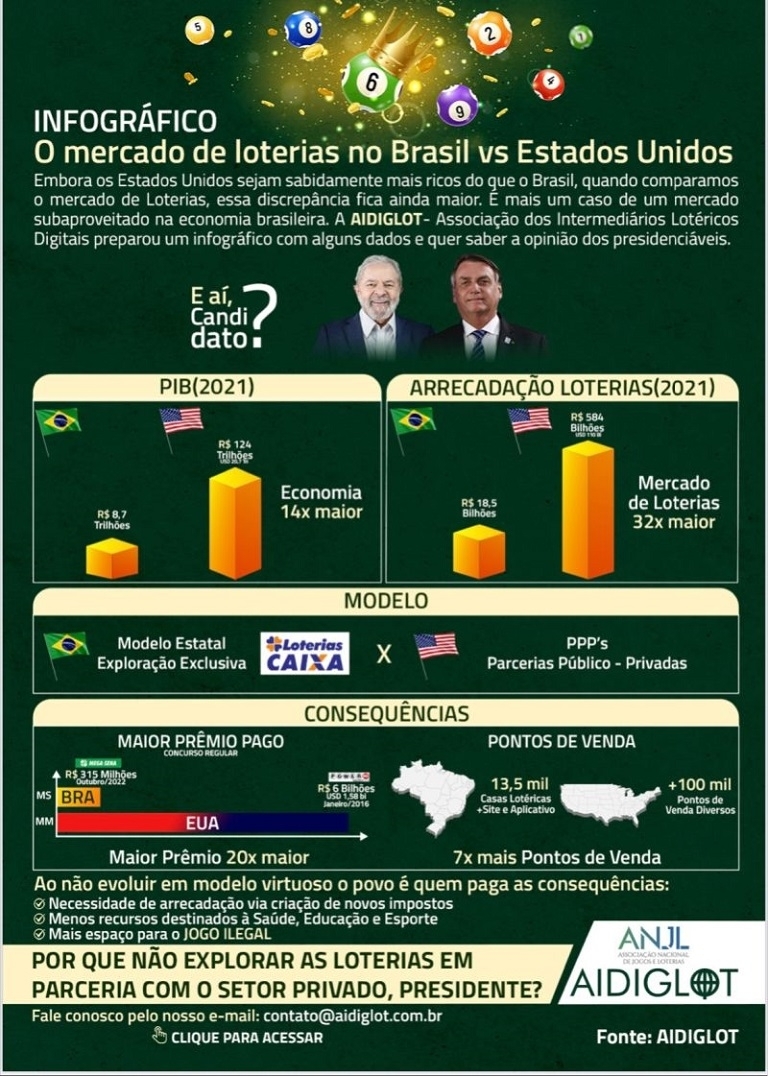

The world market for lotteries has numerous excellent examples of how the activity is seen in different countries. Brazil, which still lives predominantly under the tutelage of the State as an almost monopolistic lottery operator, has much to gain from the opening of the sector.
In an infographic created by AIDIGLOT – Association of Digital Intermediaries of Lottery Games, the entity highlights the American market and how much it is immensely larger than the Brazilian, despite any difference between a rich and an emerging country, such as Brazil.
The first and most important comparison concerns the collection of lotteries in 2021. While Brazil moved R$ 18.5 billion (USD 3.5b), the U.S. market reached R$ 584 billion (USD 110b), 32 times more than the country, in an economy that is 14 times larger than brazil's (GDP of R$ 8.7 trillion –USD 1.6t- in Brazil and R$ 124 trillion –USD 23t- in the USA).

One of the reasons for this discrepancy, so it is understood in the chart created by AIDIGLOT, is the operation model, since in Brazil Loterias CAIXA explores in a monopolistic and almost exclusive way the modalities. The exception is in the operations of Loterj, in Rio de Janeiro and Loteria de Minas Gerais, the best positioned, but with infinitely lower revenue than the Union's sales, in addition to others of lesser relevance, such as Paraíba and Ceará.
While the monopolistic model is still remarkable in Brazil, in the United States lotteries are exploited in the form of public-private partnerships, in which operators operate independently, but linked to state concessions.
Another comparison that draws attention is about the highest prize paid in Brazil and the United States. Now in October, Caixa paid a prize of R$ 315 million (USD 59m), while an extraction of the American lottery delivered R$ 6 billion (USD 1.12b) in January 2016.
AIDIGLOT points out, finally, that another point that impacts the market are the points of sales in Brazil, which represent seven times less than in the United States, since caixa's lottery network is composed of 13,500 retailers, while in the United States there are more than 100,000 different points of sales.
By signing the infographic, AIDIGLOT asks: "Why not exploit lotteries in partnership with the private sector?" and points out that the non-evolution to an appropriate model leaves consequences for society, such as the need for collection through the creation of new taxes, fewer resources for health, education and sport and more space for illegal gambling.
Source: GMB